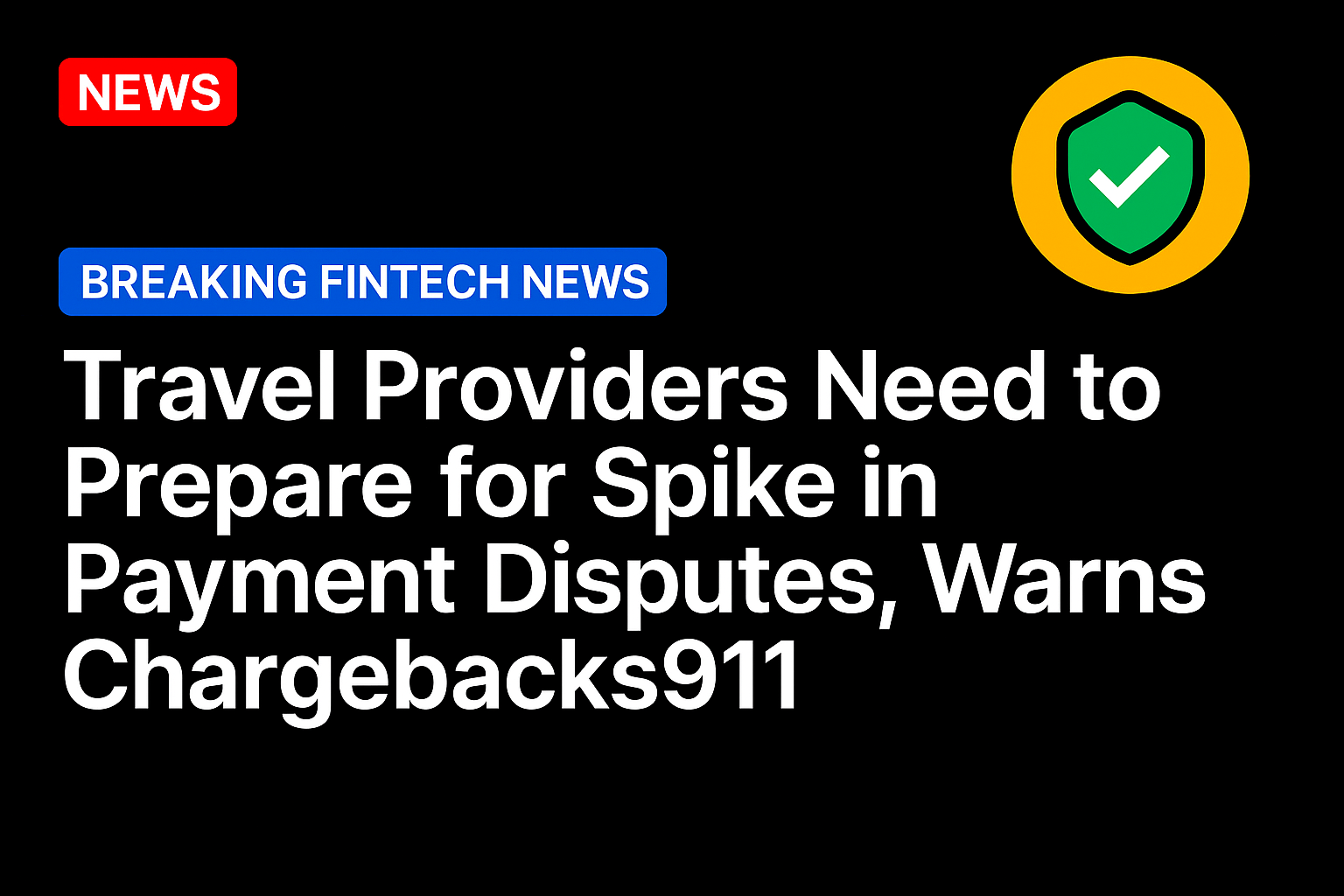With the global travel industry entering peak summer season, Chargebacks911, the dispute resolution and chargeback prevention company, has urged travel providers to prepare for significant rises in payment disputes.
While the upcoming travel season should prove to be the most profitable period for businesses in the travel industry, Chargebacks911 says that high demand and escalating service disruptions could see disputes inundate businesses.
The warning follows a number of travel disruptions across the globe in 2025 alone, including a major power outage at London’s Heathrow Airport, transportation strikes across Spain, and heightened geopolitical tension, including US airstrikes in Iran that have disrupted air routes and heightened traveller uncertainty across parts of the Middle East.
“Summer brings immense revenue potential for the travel industry, but it also brings strain, volatility, and a sharp rise in payment disputes when unforeseen events disrupt services,” explained Monica Eaton, founder and CEO of Chargebacks911. “We see an annual pattern where consumer expectations collide with overstretched systems, and this year, that’s being amplified by real-world disruptions that business can no longer afford to ignore.”
According to the World Tourism Organisation, 1.4 billion international tourist arrivals were recorded in 2024, nearly matching pre-pandemic levels. In 2025, the International Air Transport Association (IATA) is projecting an eight per cent increase in travel demand. But with growth comes growing pains, and for many businesses, chargebacks have become a hidden threat to peak-season profitability.
Mastercard reports that 46 per cent of chargebacks in travel and hospitality are fraudulent – the highest of any industry. The average travel-related chargeback is valued at $120, and global chargeback volume is forecasted to impact 324 million transactions annually by 2028.
Global conditions lead to more disputes
From overbookings and flight cancellations to customer confusion over third-party bookings, travel businesses face a wide range of friction points. Recent events, such as US military action in the Middle East, have only added to the uncertainty, prompting cancellations, rerouting, and a surge in support inquiries.
“When chaos hits, whether it’s from natural disasters, global conflict or shortcomings in customer service, disputes are often the downstream consequence,” Eaton added. “For travel businesses, when it comes to refunds and disputes, being proactive rather than reactive is paramount in mitigating financial damage.”
To help businesses minimise the risk of chargebacks, Chargebacks911 has issued a number of recommendations for different service providers.
For airlines, it suggests enhancing staff training to manage delays, rerouting, and service complaints, introducing real-time alerts and support tools during geopolitical or weather-related events, and using chargeback alert systems to identify and resolve disputes before they escalate.
It also says that hotels should clearly communicate cancellation and refund terms upfront and at check-in, issue pre-arrival reminders to reduce no-shows and miscommunications, and ensure they have responsive on-site resolution protocols to address guest complaints in real time.
Finally, it says that online travel agencies should consider behavioural analytics to detect first-party fraud and high-risk booking patterns alongside customer self-service tools to address dissatisfaction before it leads to a chargeback.
Eaton concluded: “Too many providers are caught off guard. When systems are stressed, customers are less patient, and the risk of chargebacks spikes. Those in the travel season who fail to prepare could see their most profitable season turn into their most costly.”
Source: https://thefintechtimes.com/




